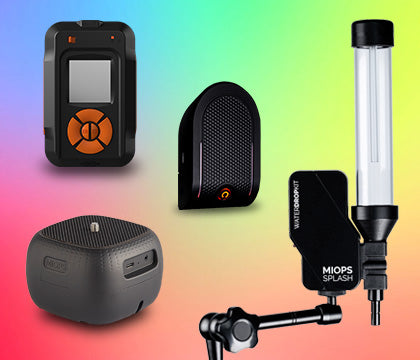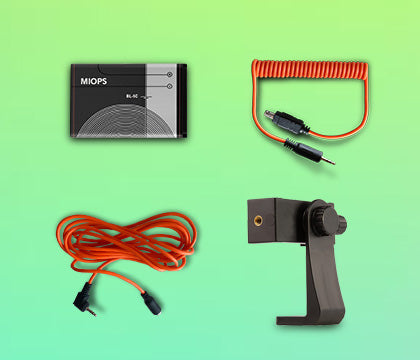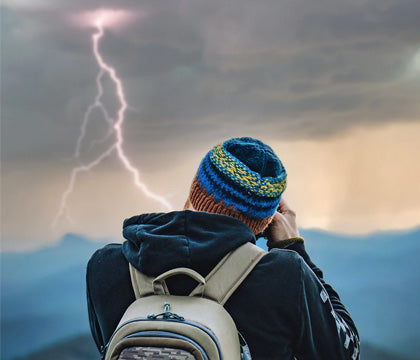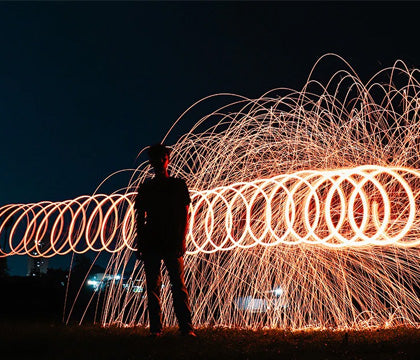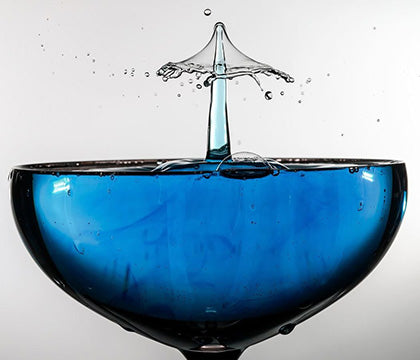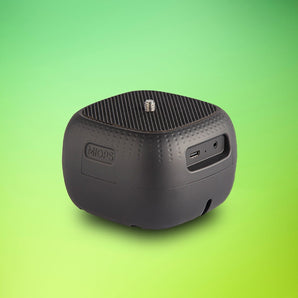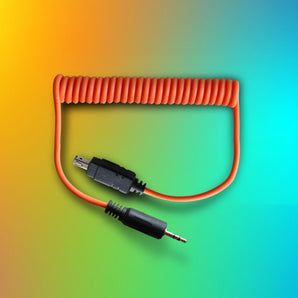There are no times of the day that is more famous for photography than “Golden Hour” — sunrise and sunset. Although great light can happen at any time, the edges of the day are perhaps the most consistent sources of inspiration you can find. Here are 4 must-haves that will make your workflow easier:
Neutral Density (ND) Filter
These are exceptionally handy for many scenarios, but they’re especially useful for sunrises and sunsets in giving you longer exposure opportunities when the sun is still producing a lot of light and your shutter speed can’t get quite low enough for a really long exposure.

These come in a variety of stops and types, such as your standard circular screw-on kind, or the square/rectangular kind, where you use a filter brace/holder on your lens.
6 stops is a good starting point for most. They’re a great in-between filter option in that it’s not too fast or slow for most situations. Having a 10-stop (or higher if needed) is useful for the times when you want to photograph a bit earlier before sunset and a little later after the sun has risen so that you’re able to have the flexibility of a long exposure during those times as well.
Circular Polarizer (CPL) Filter
Among a diverse selection of filters you can purchase on the market, these seem to have the most questions about what to use them for. These are excellent for managing reflections off of glass and water surfaces and enhancing results with the sky and clouds in your images.
The filter is manually rotated one way or another to varying degrees, to influence exposure to light levels. Adjusting light exposure reduces reflections, glare, and haze. This also boosts color saturation and contrast, making images appear richer, clearer, and more vivid.

Tripod
Behind a camera body and lens, a tripod may be the next most important piece of photography equipment you can buy. Even if you have the steady hands of a surgeon, it's still not as good as the stability that a good, solid tripod can provide. And the more stable your camera, the sharper the photos that it can capture.
A professional landscape photographer, who is frequently out in the field and traveling the globe shooting in all weather conditions, should have a professional quality tripod. They rely on their photography, and on that tripod to a great extent, to provide a paycheck.
Don’t forget when you’re using a tripod to turn off your Image Stabilization. You might not realize it but with your camera, on a tripod, it’s still trying to correct motion even if there isn’t any unless you’re on a moving platform or pier and in that case having it enabled can improve your chances for a much sharper image.

Shutter Remote
Having a remote trigger such as MIOPS Smart+ is important to have in setting up for the perfect long exposure of a sunrise or sunset.
Most of the times, the maximum many cameras can go in-camera is 30 seconds, which works just fine, but if you’re wanting more dramatic looking images you would want to go longer. Adjust your timing for how extensive you want any kind of motion to be in your image to obtain your desired look.

MIOPS SMART+
Take impossible photos by turning your camera into a high-speed capture device!
Sunset photography can be a lot of fun to do. The nice thing is you don't have to travel far to do it. There is a sunset every day and it can be captured from virtually anywhere. Even in your own backyard. Not every day will have a great sunset, but many will.
To catch the Golden, Blue or Twilight hours of the day, you can download our Golden & Blue Hour app from your app store.
Download Golden & Blue Hour App for Android
Download Golden & Blue Hour App for iOS

Related Article: Best Tricks for Shooting Stunning Long Exposure Photographs
About The Author Manuel Delgado:
Manuel Delgado is an award-winning photographer with a specialization in travel and documentary photography. He writes for Contrastly and is a Mentor for NGO Photographers Alliance, having led workshops in Africa with a focus on ethical and humanitarian photography. His work has been exhibited in Europe and the Americas.
Driven by an innate curiosity for his surroundings, Manuel´s process is mainly focused on capturing people in their natural environment; translating through his lens the subtle threads of daily life that are shared across cultures, borders, and races. Depicting people from diverse backgrounds, his work is united by a shared aesthetic that serves to tell each individual’s story. Manuel is currently living in Düsseldorf, Germany.
Manuel Delgado Instagram Profile


